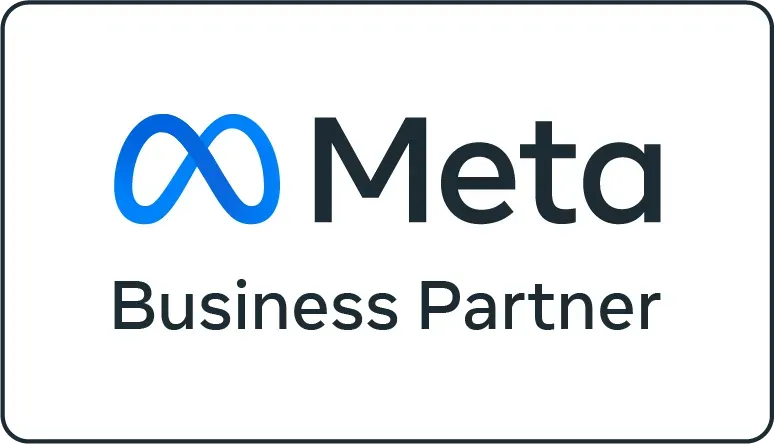
What Are Organic Search Results? The Ultimate Guide
What Are Organic Search Results? The Ultimate Guide
What are Organic Search Results?
Organic search results are the listings on a SERP that appear due to their relevance to the search terms, as opposed to being paid advertisements. These results are ranked by algorithms that consider various factors such as content quality, keyword relevance, and user engagement.
The Evolution of Organic Search
The concept of organic search has evolved significantly with advancements in search engine algorithms. Initially, search engines relied heavily on keyword density, but now they focus on a more holistic approach, considering user intent and content quality.
The Importance of Organic Search
Why Organic Search Results Important?
Organic search is vital for businesses due to its cost-effectiveness and ability to build trust with users. Unlike paid ads, organic results are perceived as more credible and trustworthy, leading to higher click-through rates and engagement.
Organic vs. Paid Search:
What is the difference between Paid Search and Organic Search?
Paid search, often referred to as Pay-Per-Click (PPC), offers immediate visibility. It allows businesses to appear at the top of search engine results pages (SERPs) almost instantly. This can be particularly beneficial for new businesses looking to make a quick impact or for promoting time-sensitive offers. However, this visibility comes at a cost, with businesses paying for each click on their ads.
In contrast, organic search focuses on achieving visibility through unpaid, algorithm-driven results. This approach requires a strategic investment in Search Engine Optimization (SEO), content creation, and link building. While it takes time to build, organic search offers sustainable growth. As SEO expert Rand Fishkin aptly puts it, "Organic search is the bedrock of a solid digital marketing strategy, providing long-term traffic and credibility."
Trust and Credibility
Organic search results are often perceived as more trustworthy by users. They are seen as more credible because they are not influenced by advertising spend. This trust translates into higher click-through rates and greater engagement. For businesses aiming to build a strong brand reputation, investing in organic search is essential.
Our Marketing Vortex strategy integrates organic search as a core component, ensuring that your business is not solely reliant on paid advertising. By decentralizing your marketing efforts and focusing on SEO, we help you build a robust online presence that withstands the test of time.
Cost-Effectiveness and ROI
While paid search can quickly drain marketing budgets, organic search is cost-effective in the long run. Once your content ranks well, it continues to attract traffic without ongoing costs. This results in a higher return on investment (ROI) over time. Our strategy emphasizes balancing both organic and paid efforts to optimize your marketing spend and maximize returns.
Synergy Between Organic and Paid Search
It's important to note that organic and paid search are not mutually exclusive. In fact, they can complement each other effectively. Paid search can provide immediate insights into which keywords and messages resonate with your audience, informing your organic strategy. Meanwhile, strong organic performance can enhance the effectiveness of your paid campaigns by increasing brand recognition and trust.
How Search Engines Rank Organic Results
Understanding Search Engine Algorithms
Search engines use complex algorithms to rank organic results. These algorithms assess factors such as keyword relevance, content quality, backlinks, and user engagement. Google's algorithm, for example, focuses on providing the best possible user experience by prioritizing relevant and high-quality content.
SEO Best Practices for Organic Ranking
To improve your organic rankings, focus on creating high-quality, relevant content that meets user intent. SEO expert Neil Patel suggests, "Consistently producing valuable content and optimizing for user experience are key to achieving high organic rankings."
Measuring and Enhancing Organic Performance
Key Metrics for Organic Search Success
To measure your organic search success, track metrics such as organic traffic, bounce rate, and conversion rate. Tools like Google Analytics and SEMrush can provide valuable insights into your SEO performance.
Strategies to Boost Organic Traffic
Adopt advanced strategies such as optimizing for voice search, leveraging long-tail keywords, and improving site speed. According to SEO strategist Brian Dean, "Focusing on user experience and technical SEO can significantly boost your organic traffic."
Common Challenges and Solutions
How To Overcoming Drops in Organic Traffic
A sudden drop in organic traffic can be alarming. Identify potential causes such as algorithm updates or technical issues, and implement recovery strategies like content audits and backlink analysis.
Balancing Organic and Paid Strategies
Integrating organic and paid strategies can maximize your digital marketing impact. SEO consultant Aleyda Solis advises, "A balanced approach ensures you capture both immediate and sustainable traffic."
How to improve organic search? Here is 8 ways
Improving organic search results requires a strategic approach that focuses on several key areas. Here’s how you can enhance your organic search performance:
1. Target Keywords that match users intent to do these 3 things
Keyword research is the foundation of effective SEO. By identifying the terms your target audience uses, you can tailor your content to meet their needs. Tools like Google Keyword Planner and Ahrefs help find high-volume, low-competition keywords. Focus on long-tail keywords to capture specific search intent. As SEO expert Neil Patel says, "Understanding the language of your audience is key to reaching them."
Identify relevant keywords that your target audience uses to find your business type online
Identify keywords that match the services you provide
Identify keywords that people use when they have a problem that your business solves with your services and products.
Use tools like Google Keyword Planner or Ahrefs to find high-volume, low-competition keywords.
Focus on long-tail keywords to capture specific search intent.
Optimise On-Page SEO
On-page SEO ensures that your website is optimized for search engines and users alike. This includes using clear and descriptive title tags and meta descriptions, optimizing headings with relevant keywords, and improving site speed and navigation. A user-friendly, mobile-responsive site is essential, as emphasized by Moz's Rand Fishkin: "A seamless user experience is crucial for retaining visitors."
Create High-Quality Content
Content is king. Producing valuable, informative, and engaging content that addresses your audience’s needs is paramount. Incorporate multimedia elements like images, videos, and infographics to enhance engagement. Regularly update existing content to keep it fresh and relevant. As marketing guru Seth Godin states, "Content marketing is the only marketing left."
Enhance User Experience
Focusing on site design and usability keeps visitors engaged. Reduce bounce rates by providing clear calls to action and easy navigation. Fast loading times and a seamless mobile experience are non-negotiable. Google's John Mueller advises, "A good user experience is a key factor for ranking well."
Build Quality Backlinks
Backlinks from reputable sites signal authority and trustworthiness. Reach out for guest blogging opportunities and create shareable content that naturally attracts backlinks. Use social media to promote your content and increase visibility. Brian Dean of Backlinko notes, "Backlinks remain a critical part of Google's algorithm."
Utilise Technical SEO
Technical SEO ensures your site is easily crawlable by search engines. Fix broken links, optimize XML sitemaps, and implement structured data to help search engines understand your content better. Technical SEO expert Aleyda Solis recommends, "Focus on making your site as accessible and understandable as possible."
Leverage Local SEO
For businesses with a physical presence, local SEO is vital. Optimize your Google My Business profile, use local keywords, and create location-specific content. Encourage customer reviews and engage with local communities. Local SEO expert Greg Gifford advises, "Local SEO is about connecting with your community and showing up where it matters."
Monitor and Analyse Performance
Regularly monitoring and analyzing your performance is crucial. Use tools like Google Analytics and Search Console to track key metrics. Analyze which strategies are working and adjust your approach accordingly. HubSpot's Dharmesh Shah says, "Data-driven decisions are the backbone of successful marketing."
Mastering organic search results is essential for any business looking to thrive in the digital landscape. By understanding search engine algorithms, implementing best practices, and continuously optimizing your strategy, you can achieve sustainable growth and success.
Want to increase your businesses organic traffic? Get a FREE Marketing plan with our SEO agency today by clicking the link below Valued at $1500




